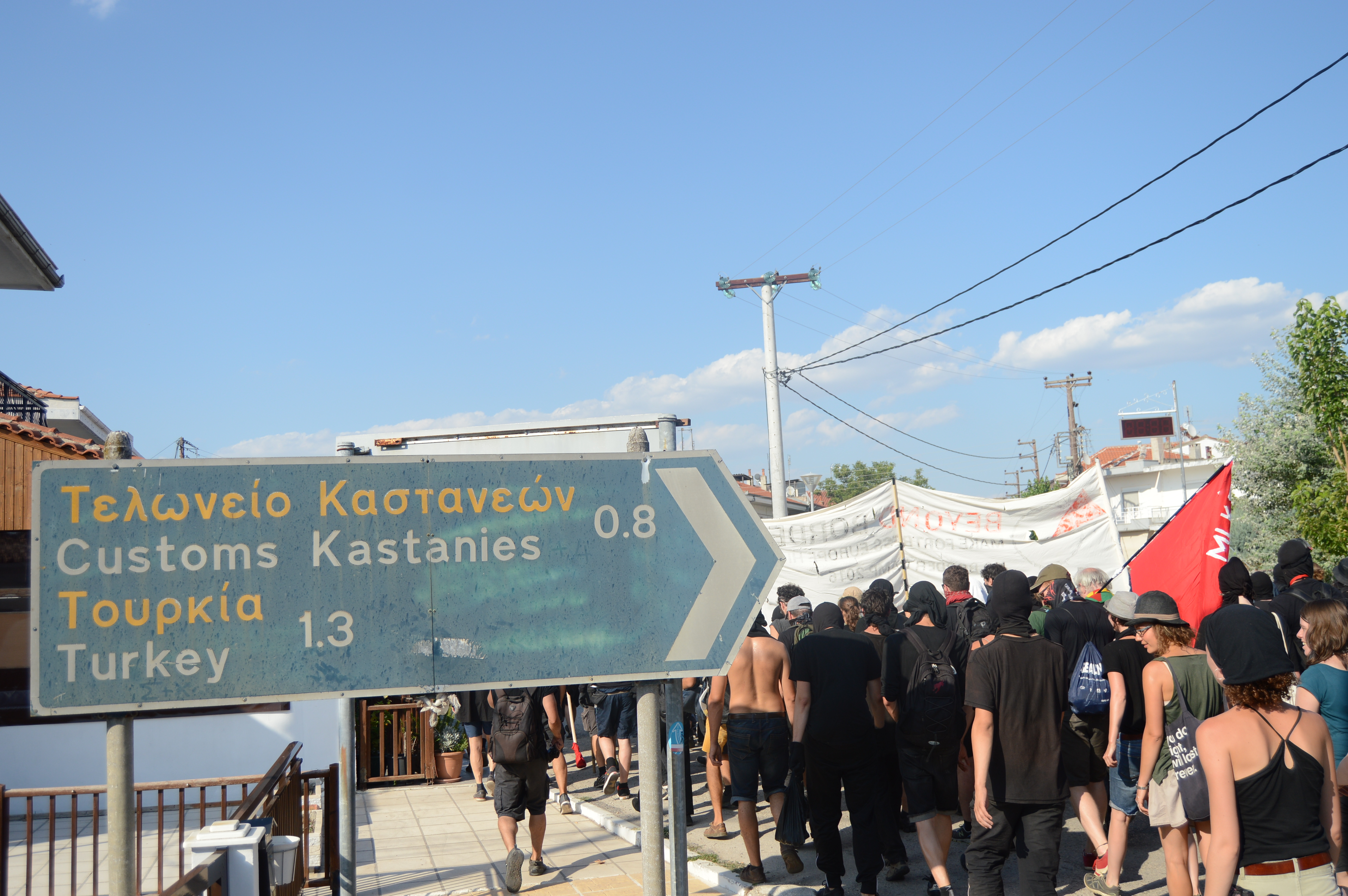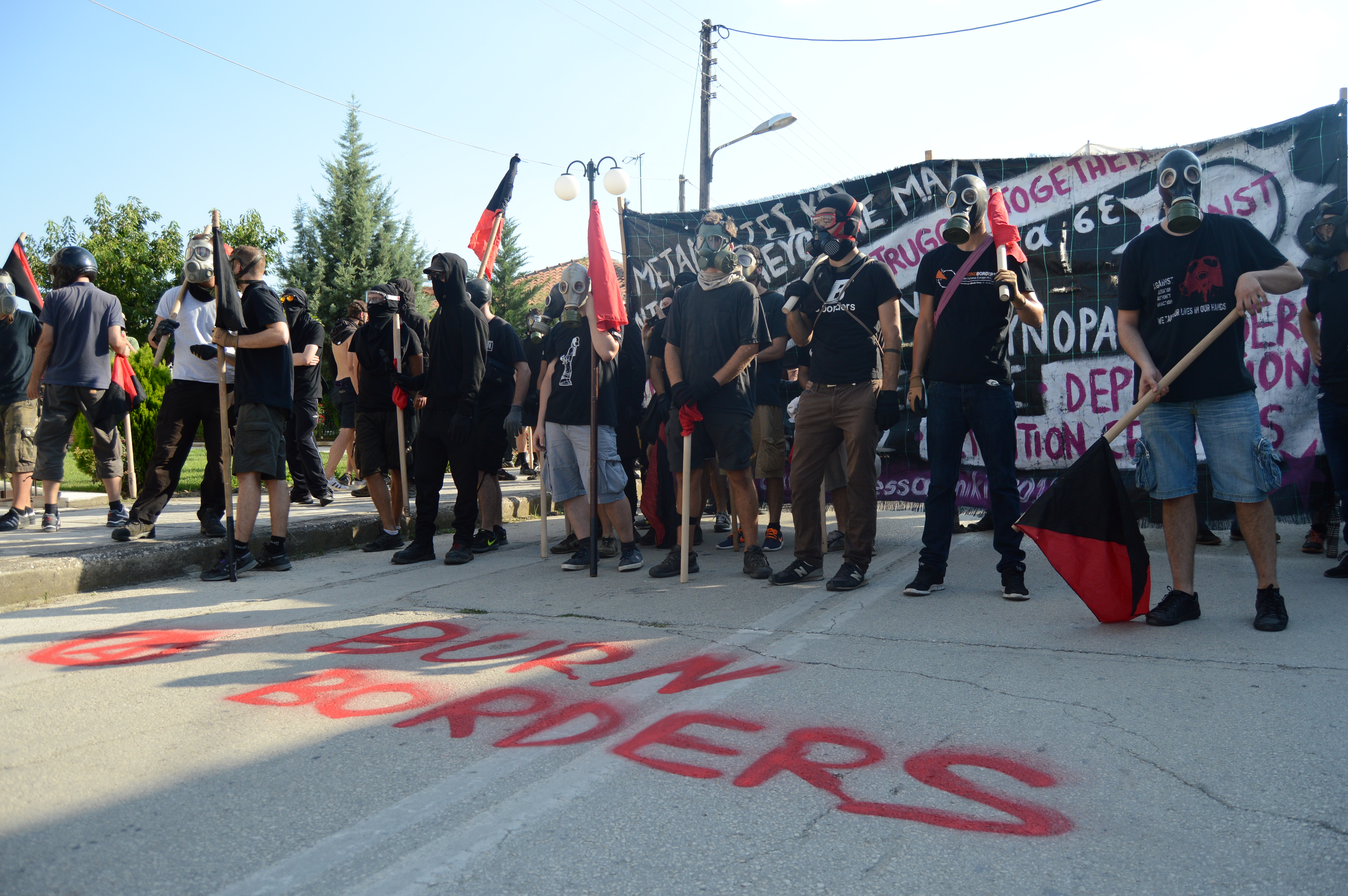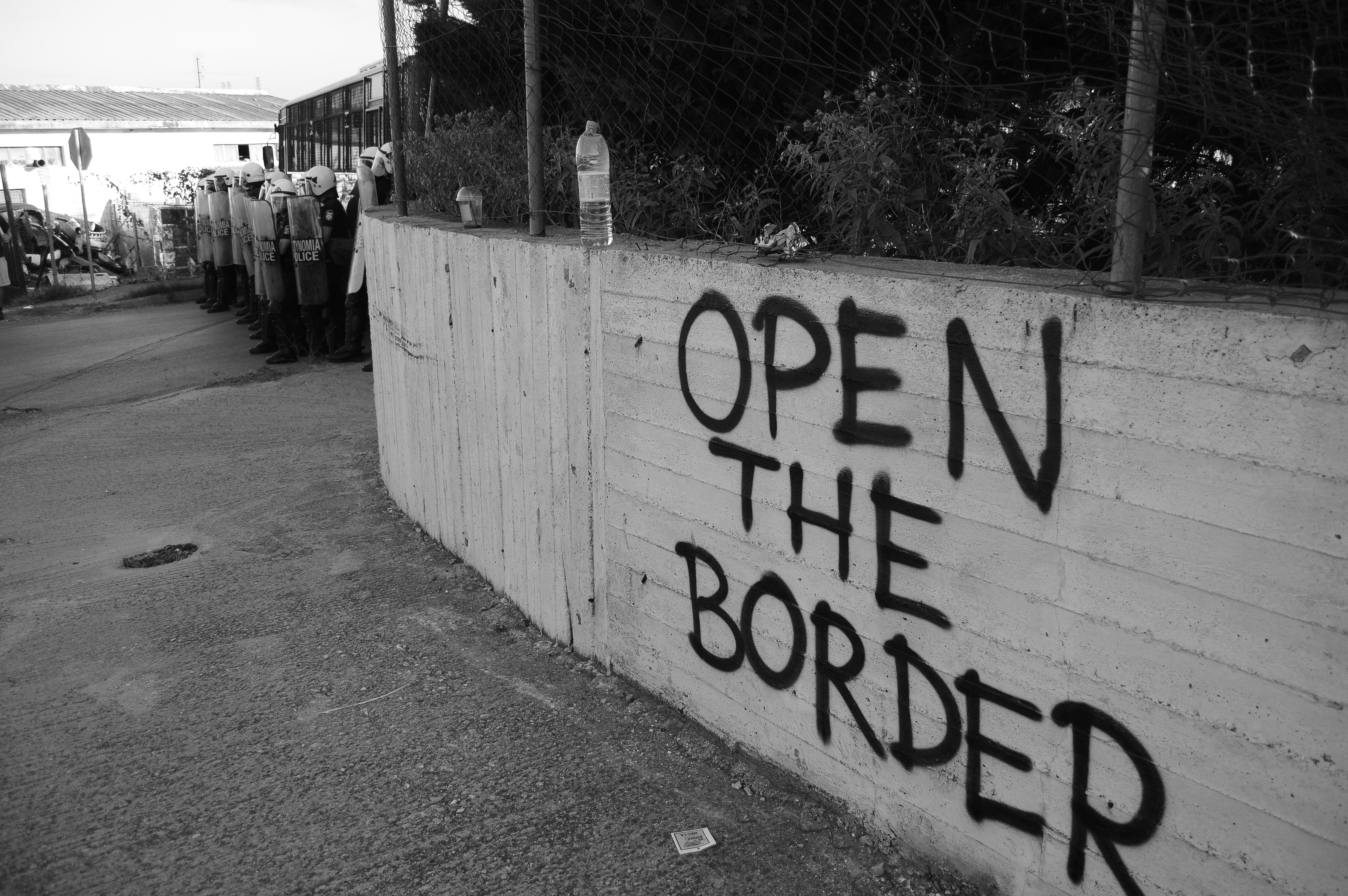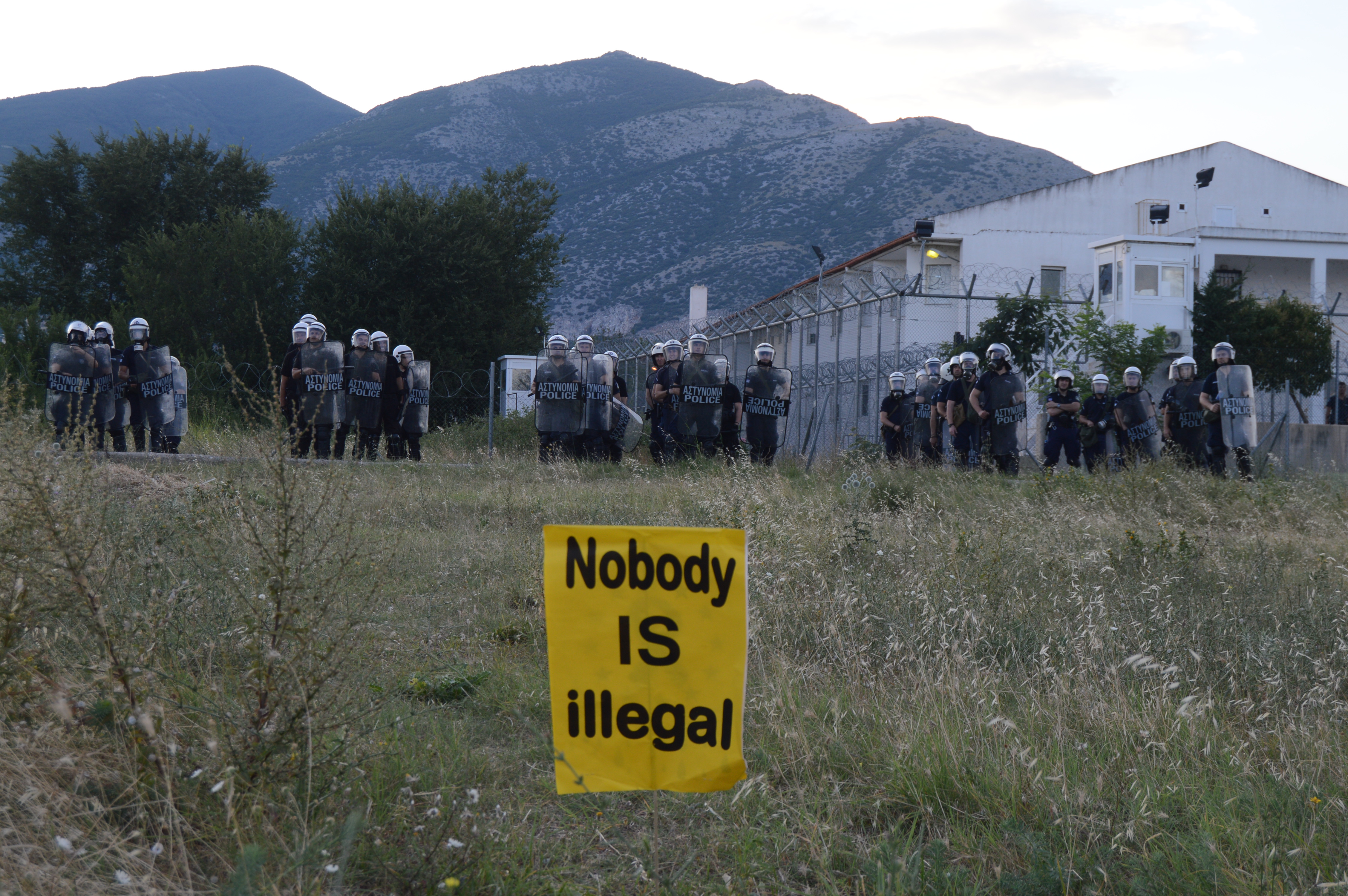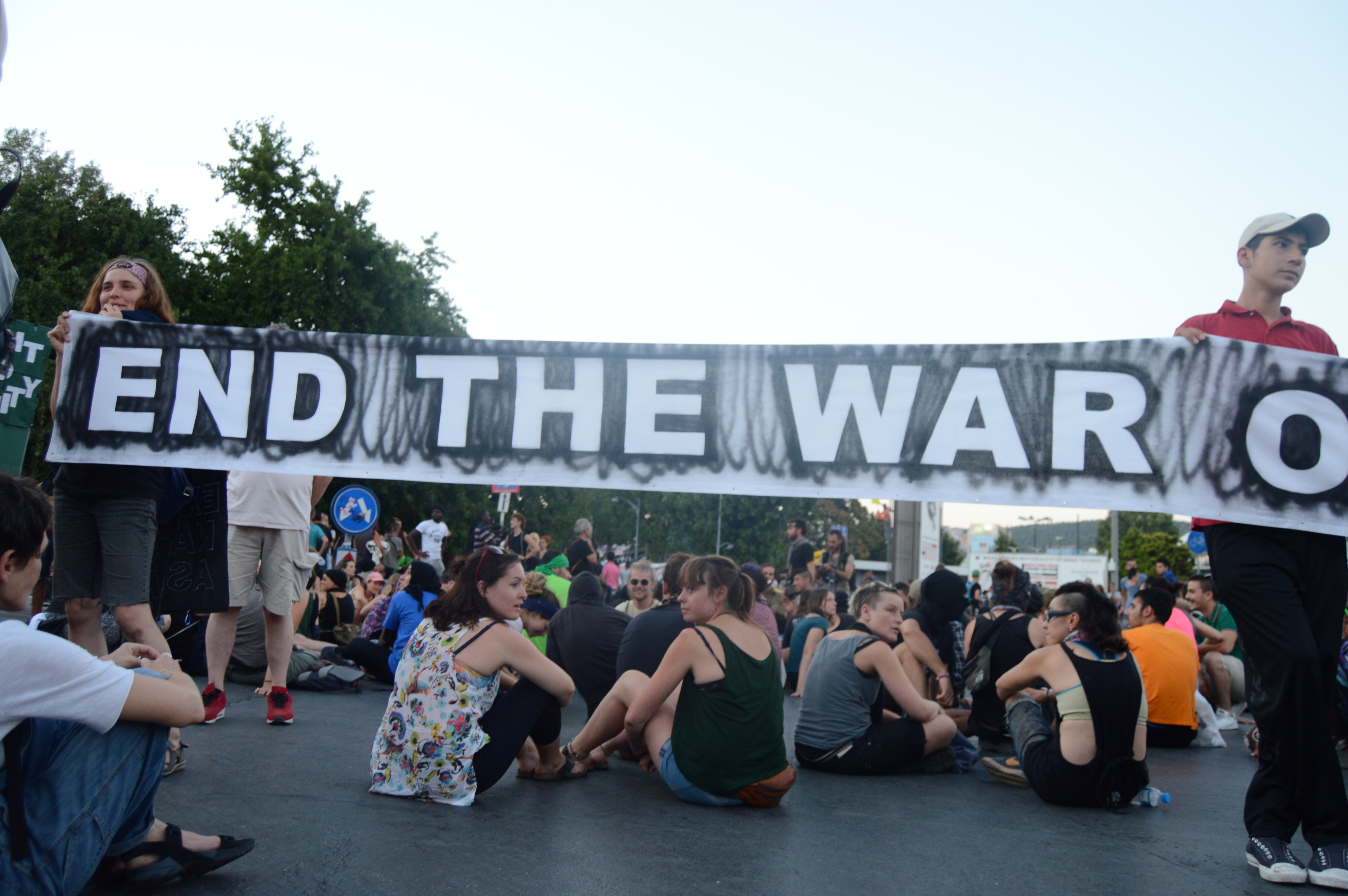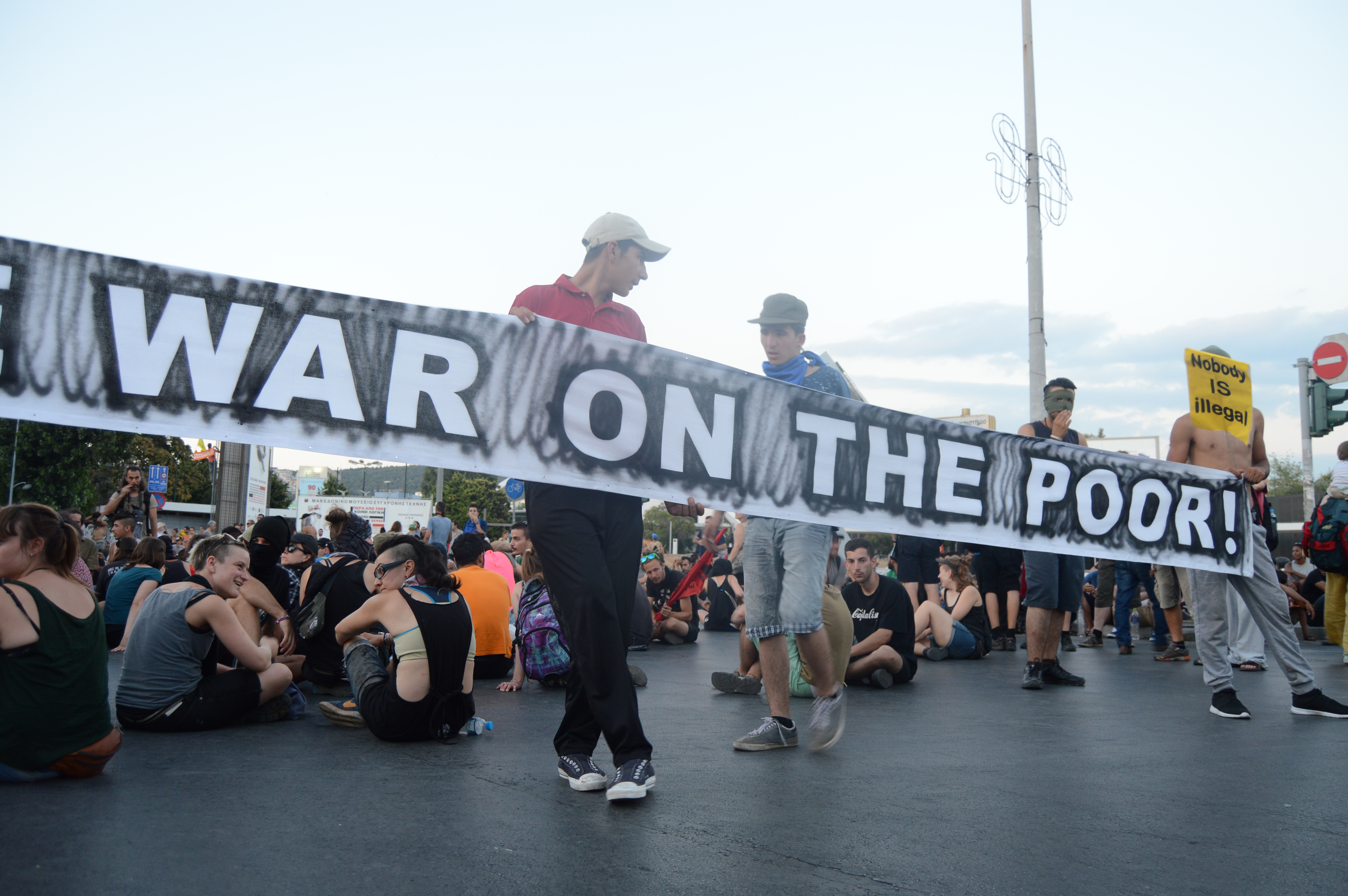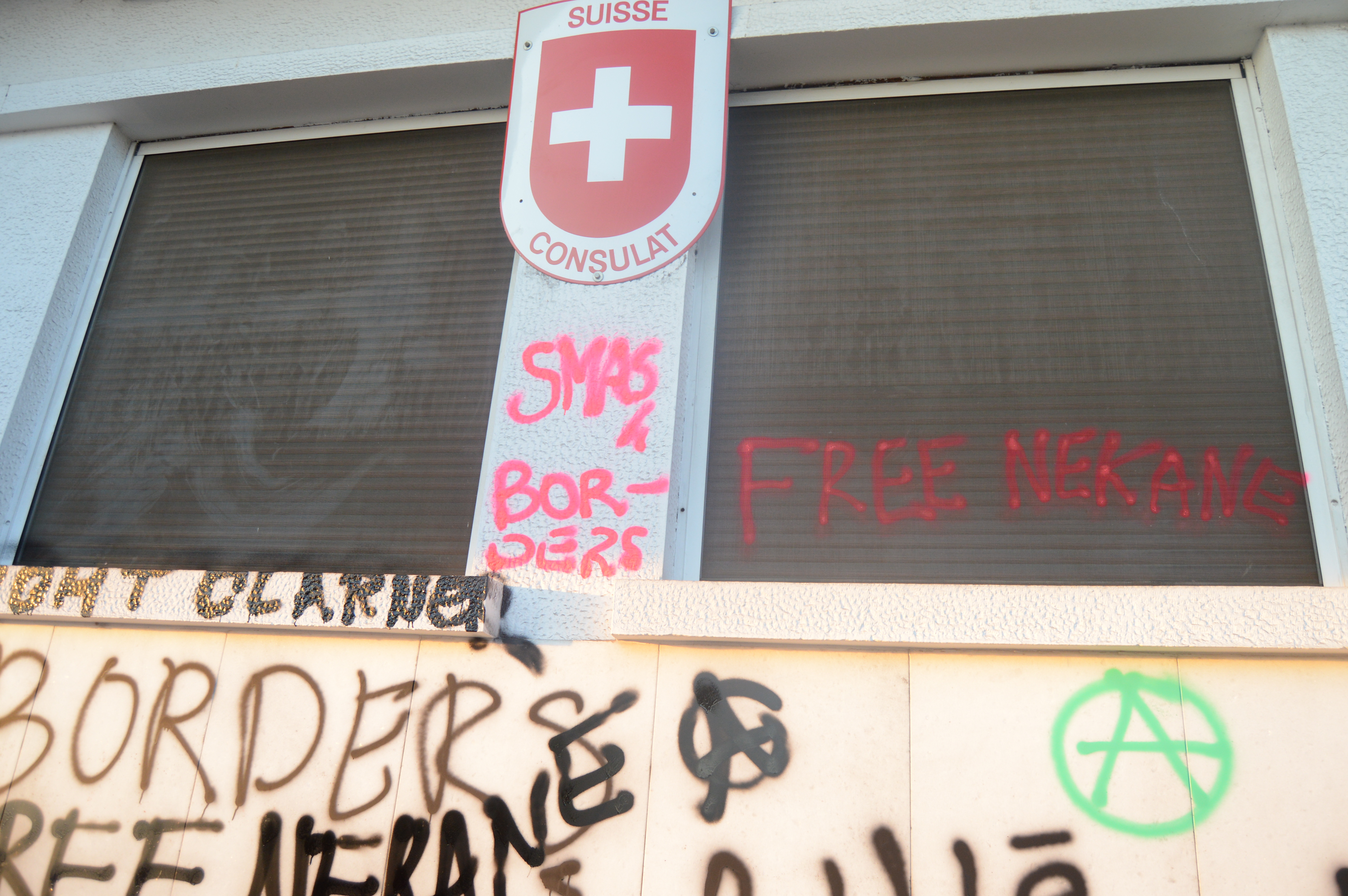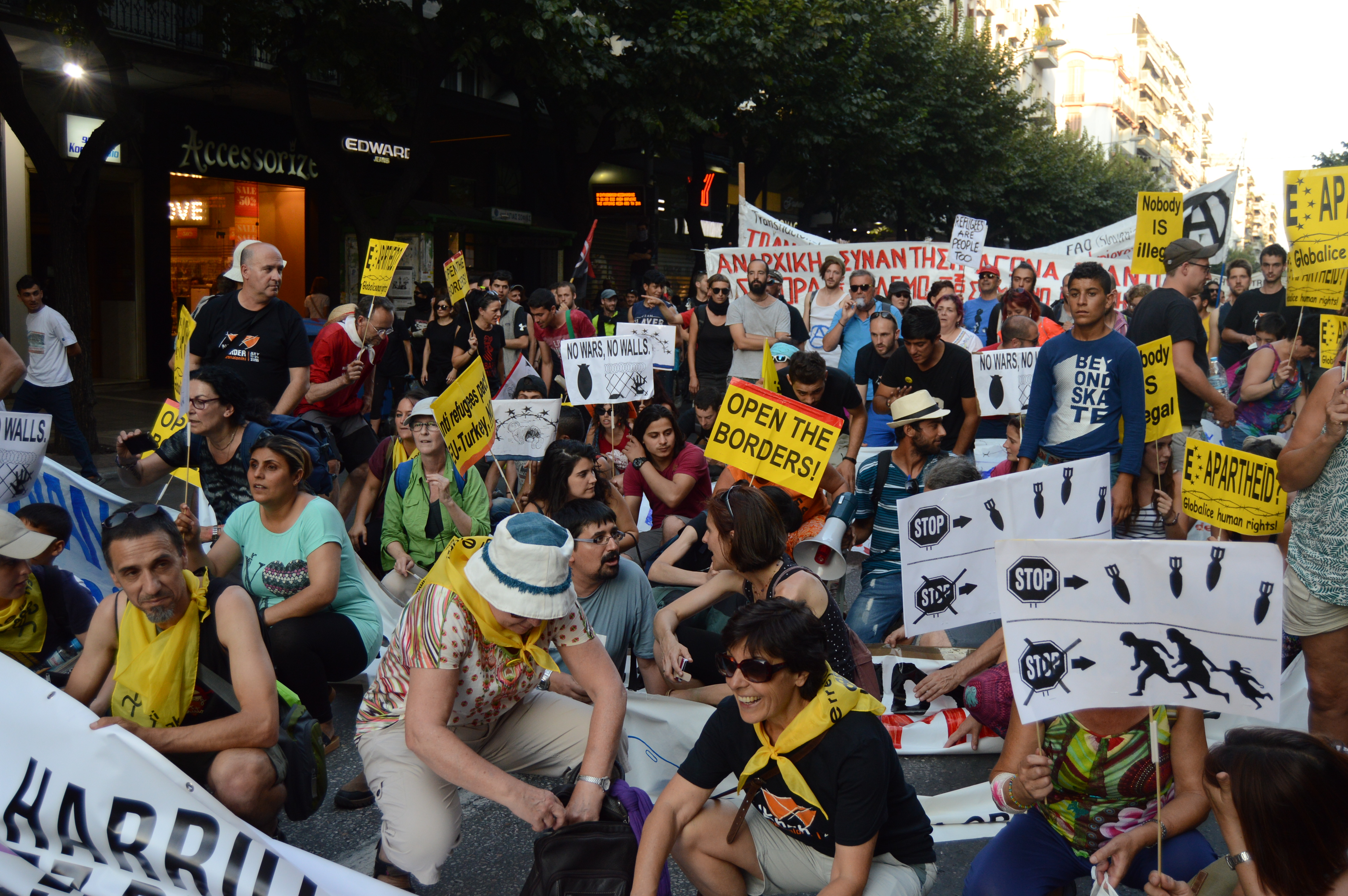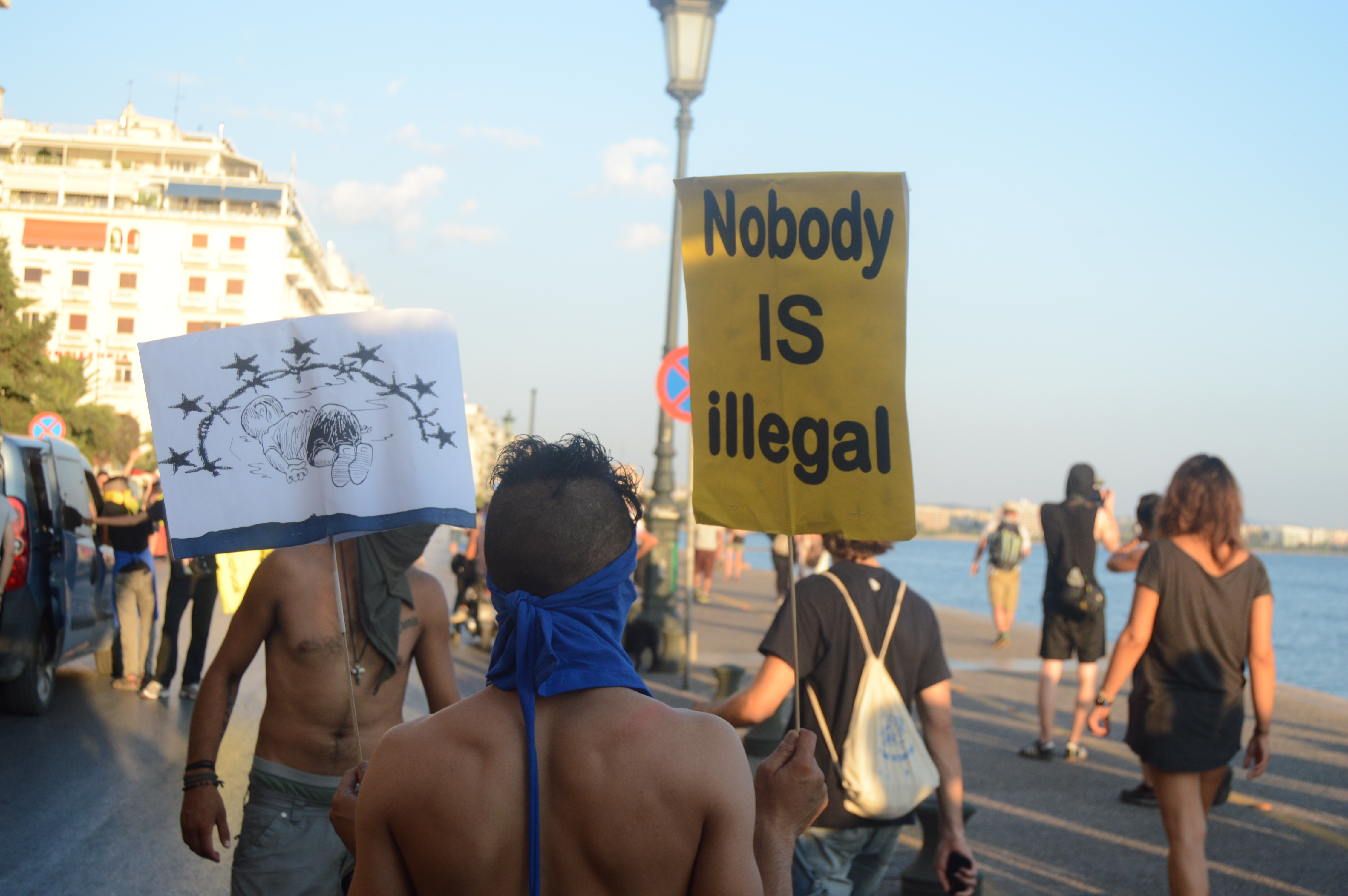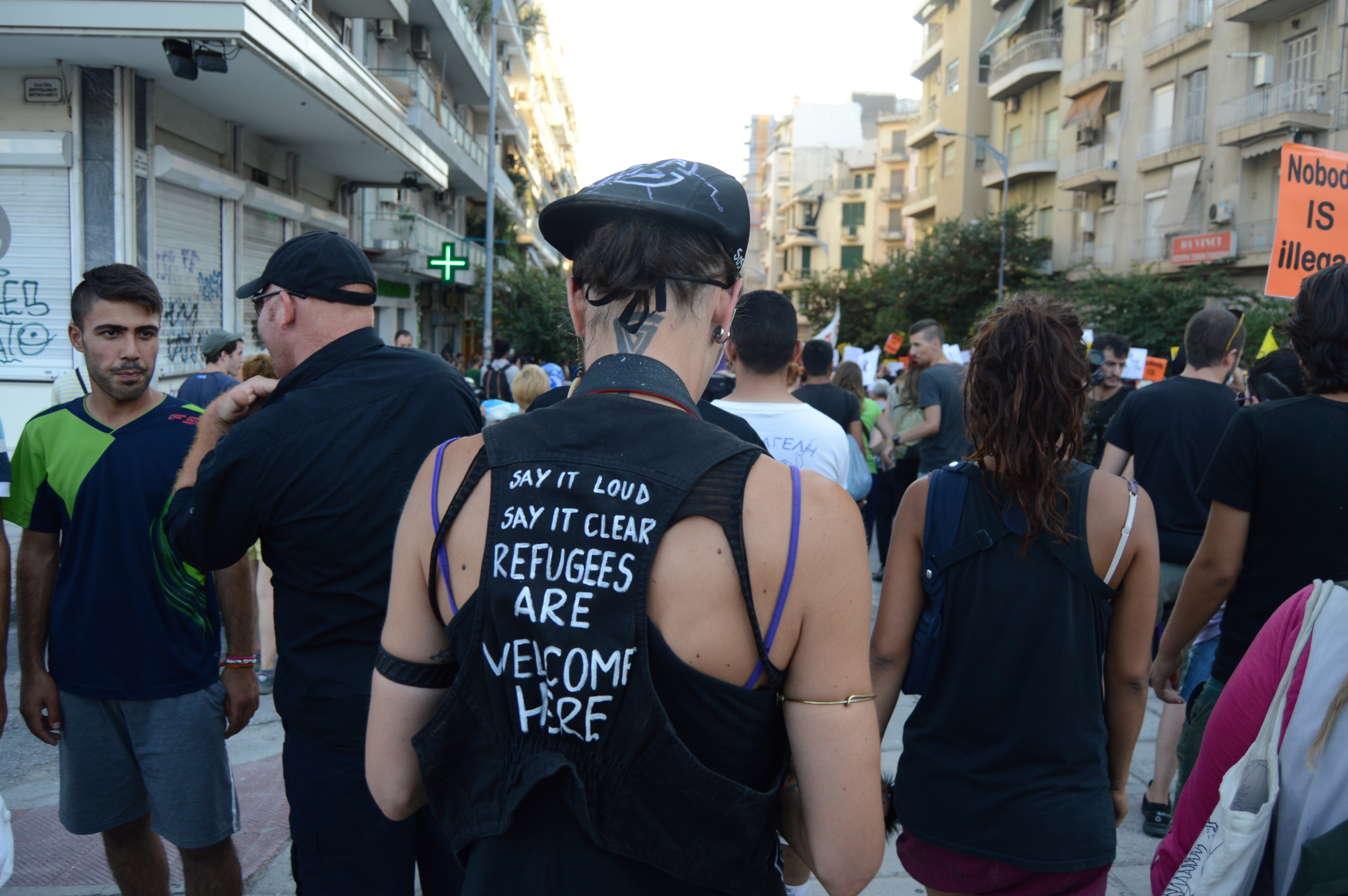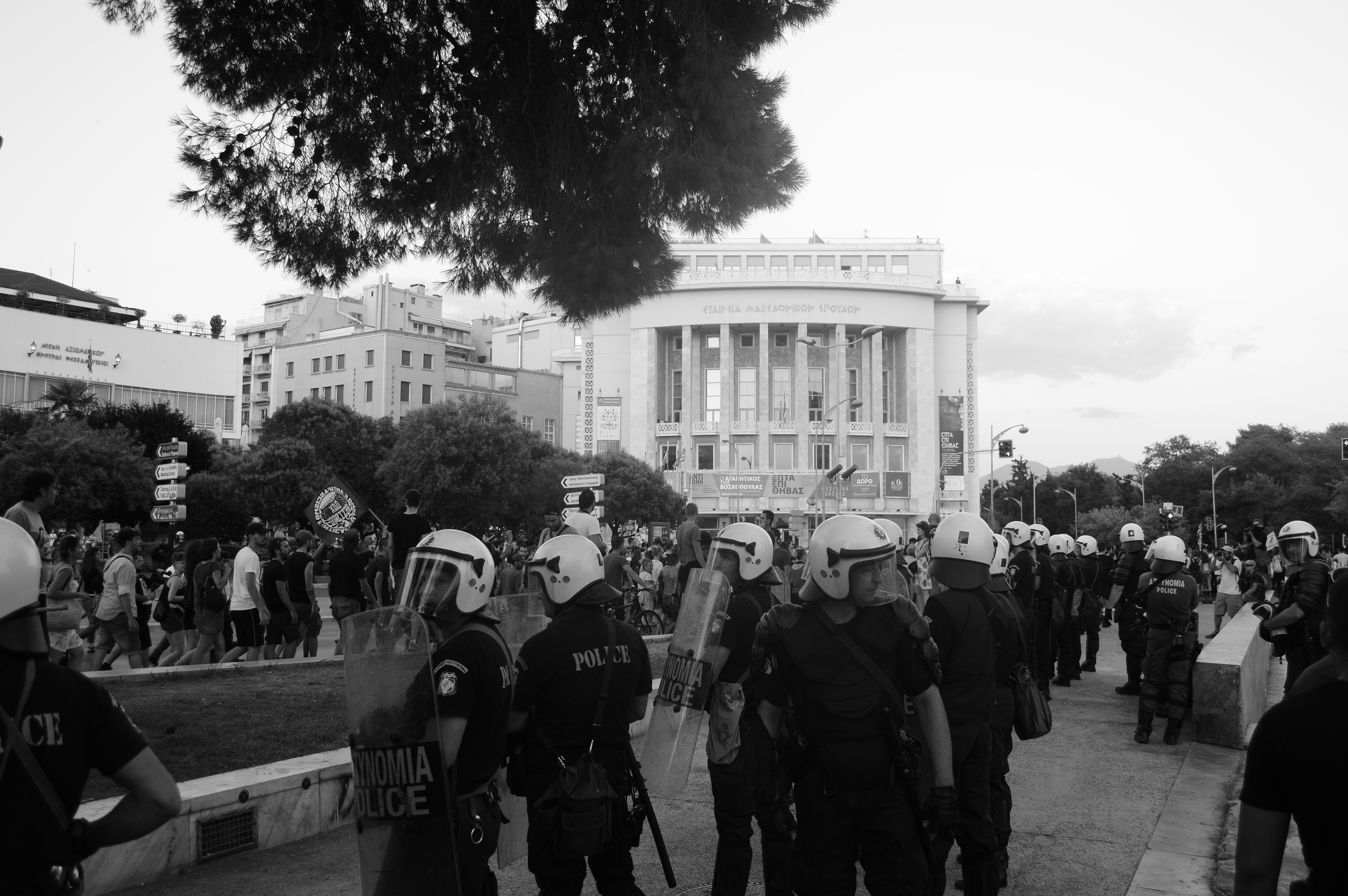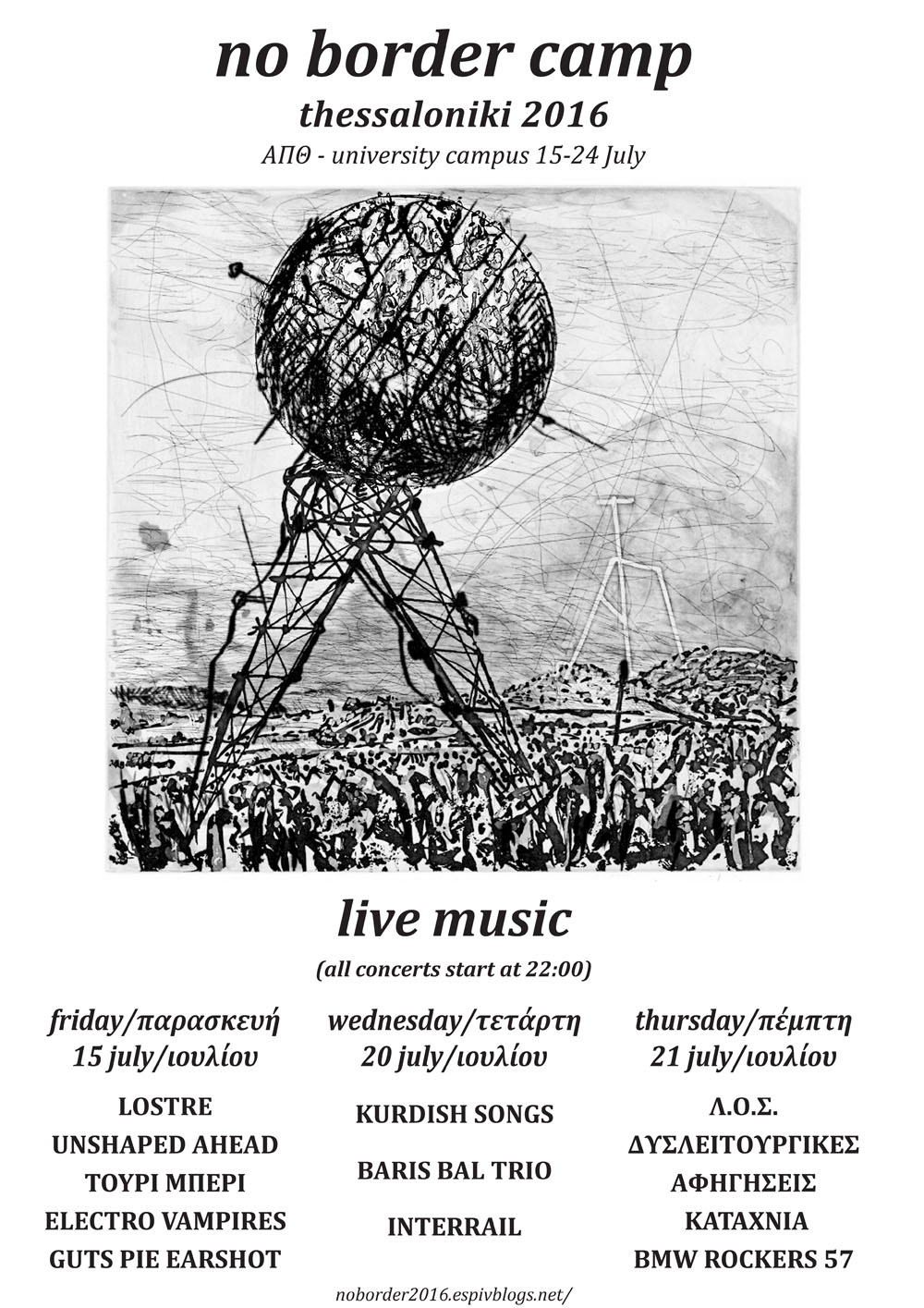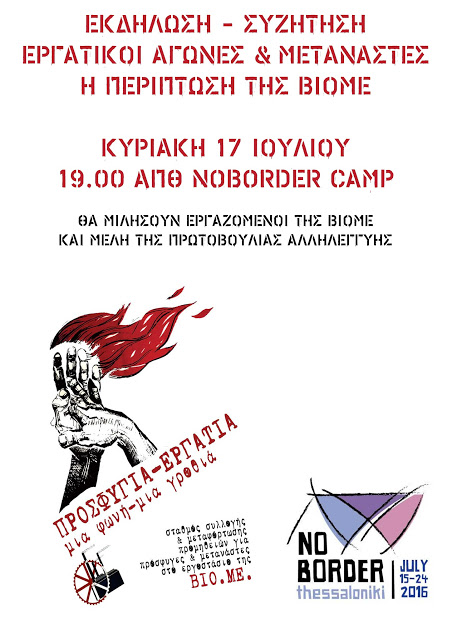The Relocation Program: Opinions from three refugees
“Everybody has to have a chance and not only the people who have war in their hometowns. I believe people should be able to go anywhere they want.” – Laila, June 2016, Thessaloniki
The pre-registration process in Greece:
Since the beginning of June 2016 the European Asylum Service Office (EASO), the Greek Asylum Service and the UNHCR have started to pre-register migrants on the Greek mainland. During the pre-registration process the migrants have to officially state their choice between three legal options that are open to them at the moment: they can try to be relocated to another EU country through the relocation program, they can ask to be reunified with their family, if they have family members that already applied for asylum in another European country, or they can choose to apply for asylum in Greece.
At the moment it seems that through the pre-registration interviews at the Asylum Office, the Greek authorities are trying to get an overview of the around 50.000 migrants currently stuck in Greece, to figure out, who is in Greece, what they want and what is legally possible for them. This however also means that people who don’t fit into the European asylum programs are being discovered and therefore more likely to be detained or deported.
The relocation program: a viable option?
In the two interviews below, we are trying to collect more information on the relocation program, in order to gain a better understanding of how this process works. Since the closure of the Balkan corridor, the relocation program is one of the few possibilities for some refugees stuck in Greece to legally leave and be officially transferred to another EU member state. However, only nationalities with a European-wide asylum acceptance rate of over 75% are eligible for the program. This means that for most migrants, this is no option. Now, even Iraqis are no longer eligible for this program.
Run by the European Asylum Service Office (EASO) and the Greek Asylum Service, people have to register and be selected for the program. However, applicants cannot decide, which country they are relocated to. Instead, they depend on the decision of the member states and must accept to be relocated to the member state that is willing to accept them. If people refuse to go to the country selected for them, their only other legal option is to apply for asylum in Greece.
The whole process of the relocation program is an extremely slow and bureaucratic procedure. Before the pre-registration process, the only option to apply for the relocation program was via a Skype call. There, one often had to keep on trying for weeks before actually reaching someone. Whether it is more efficient with the pre-registration process still needs to be seen. Further, it is not transparent, who is selected for the program and on what basis. Even once selected for the program, the people have to go through several interviews and are then left to wait for weeks without any further information on their case.
Even though the process of the interview is similar at the pre-registration office as it was when people made their appointments over Skype, there are major differences concerning the asylum ID cards the migrants receive. While Laila and Mohamed got an asylum ID valid for 6 months, the asylum ID’s handed out to people after the ‘pre-registration’ process are valid for 12-months. However, people who applied for family reunification told us they only receive 6-month. People are also explicitly forbidden to work, if they are in the process of relocation.
Through the interviews and more conversations with other people, who had chosen the relocation program during the pre-registration process in the Asylum Office of Thessaloniki/Kalochori, it becomes clear that the relocation program might take a very long time for some people; even people, who have been registered several months ago still have not been relocated. It therefore seems likely that thousands of ‘pre-registered’ people will remain stuck in Greece.
The experiences with the relocation program of Laila, Mohamed and Sahar
Mohamed and Laila from Syria are some of the few people who were lucky to register at the Greek Asylum Service via Skype before the eviction of Idomeni and before the start of the pre-registration process. They registered in the beginning of May and had their first interview for relocation in the Asylum Office of Thessaloniki in June. We met them and interviewed them about the procedure and the questions asked in their relocation interview. It was announced to them, that they would receive a phone call from the Asylum Office for further procedure, but so far nobody called and they are still waiting in Greece.
The second interview was conducted with Sahar, also from Syria. She registered for the relocation program and was interviewed in Thessaloniki in March. The day before our interview with her, she was called by the embassy of France to possibly be relocated there. But she too, is still in Greece.
In the following Interviews the procedure the three people went through are explained in detail:
Interview with Laila and Mohamed:
Conducted in June one day after their official interview with the authorities, in the place where the two are currently staying in Thessaloniki.
Why did you decide to apply for relocation?
Laila: The borders are closed and the only thing we can do is to apply for relocation. Here in Greece there is nothing for us, no money no anything.
What do you expect from participating in the relocation program in general?
Mohamed: We don’t know. We wrote some countries we chose, but we are afraid they are not going to send us to one of the 5/6 countries we chose. If we are lucky we might go to France or some other country we want but if not we have to go to another country.
Laila: We want to go to a country where there is the possibility to have money. You know what I mean? I want to find a job and my sister as well.
Mohamed: And I want to continue my studies and then find a job as well.
When did you decide to participate in the program and how did the attempts to contact the relocation authorities by skype work out?
Laila: My sister decided to do relocation. That’s why I want to as well. We want to stay together. We started trying to skype with the authorities maybe one month ago.
Mohamed: I want to leave and be somewhere else, that’s why. I tried to skype with them for about 6 weeks.
How was the interview at the Asylum Office?
Laila: It was easy. They just asked some questions like for example how old are you, why did you come here, why did you leave Syria and about your religion, like if you are Muslim or something else.
Did they ask further questions?
Mohamed: Yes, about your name, your age, about your parents, religion, if we are married or not, and if somebody of us fought with Daesh or Nusra, that’s everything. Not so many questions.
Laila: They also asked when we left Syria, they wanted a date or something. Also if we want to return there or not and if yes or no why. Ah, and about your family, do you still have family in Syria? Do you give them money? Like for example me and my sister, we have no husbands but family in Syria and they don’t have money, and if you want to give them money or not?
What did you say?
Laila: I have a brother and my mom in Syria. They don’t have money so of course I want to help somehow.
Did they comment that somehow, do you know if they liked your answer or not?
Laila: Nothing, they just asked.
Mohamed: Maybe it is better to say if you have family. So for example, if you go to France and you get a residence, I can bring my family there as well. That’s why I said everything; I have my brother and my sister. I wanted to say it, because maybe then they can do something for them. I think it’s better.
What did you answer when they asked if you want to go back to Syria?
Mohamed: I said no.
Laila: Me and my sister too. Also not after the war. They asked why and I just said, I don’t want to go back again.
Mohamed: I don’t want to go back at all. Also before the war it was difficult, because of the religion.
Did they ask anything about health or something else?
Laila: Yes they asked about our health. If you have something, they want to know what the problem is, but I didn’t have anything.
Laila: They also asked about the family in Syria, like if they have any health problems, if you don’t have any problem.
Did they also ask you about your education and your language skills? If you speak other languages besides Arabic?
Mohamed: They asked if I am Kurdish or Arabic and after that they asked, which other languages we speak, like English or other languages.
Did they ask for your education or what kind of jobs you did before or if you studied something?
Laila: Yes, they asked me and I finished high school after the 12th grade and worked after.
Mohamed: Yes, they asked me the same question and I said that I didn’t finish my university and that I want to continue studying.
Did they ask you what kind of job you had?
Laila: Yes, they asked that and I told them.
Did they also ask you how long you have been working?
Laila: Yes, they asked me how long I have worked and I told them maybe 6 to 8 years.
Did they ask you if you are traveling with money?
Mohamed: No, they didn’t ask anything about money.
Laila: They asked if you have somebody, who sends you money and I said no. And they asked the same question, if I help my family or not with money. But I said, that I don’t have money to support them at the moment, but maybe after when I go to a country, where I can work.
Did they ask you for any papers, which prove your work, university or nationality?
Mohamed: Yes, they asked that, but I didn’t have papers. Only my passport. But they also asked for the papers of the army. They wanted to know, if I have done one or two years of military service, and if I have a paper, which proves that. But I didn’t have that; only my passport, which they kept.
Who was with you in the room during the interview?
Laila: In the beginning, I was in the room with a Greek woman. She asked the questions; the translator was not in the room, but on a Skype video. This was the first room. Later there was another interview in a different room. In this room a translator was also in the room and a Greek person to ask questions. But in both rooms the same questions were asked, just by different persons and in different rooms. In the first room the questions were on a paper. In the second room, they ask the same questions but in a different order than before. And I gave the same answers as before. When I left the room, they told me I have 95%. To my sister they said the same. That was good I think.
Mohamed: They didn’t do that with me, I was alone.
Laila: I think when you are lying, then they find out like that.
Did you have the interview alone or together with your sister?
Laila: I was alone, and after me, my sister went in there alone as well, and then we did that again with the other room. They are smart.
Did they tell you how the process will continue after the interview? What will happen next?
Mohamed: You have to wait at least 8 weeks, then someday they will call you.
Who is calling?
Mohamed: The asylum service and they tell you, if you should go to Athens.
Did they tell you how high chances are to be accepted in the relocation program?
Mohamed: You tell them around 8 countries. When these 8 countries all say no, we don’t want this family or this person, then you have to stay here in Greece. Maybe it will not work for us and we have to stay. I asked the woman at the asylum about that and she told me that.
Laila: They told me that I can choose between 8 countries, but I only chose 5 and then I asked, if it will work out. And they said, if none of the countries accept me, I will have to stay in Greece and ask for asylum here. Then we can’t call the relocation program again.
Also I heard from a friend, that she didn’t put France on the list, but now she is getting sent to France. So maybe we will even get another country not from the list. So only when all say no, we have to stay in Greece.
What do you think you will do in the next years?
Mohamed: I will maybe study and work.
Laila: Me too, maybe study and work
Did they say something about that in the interview?
Laila: They asked me, if I want to stay together with my sister or not. They asked my sister that too.
And if you want to go to one country, but your sister not, you can put that on your list. But we said no, we want to stay together. My sister wrote down 5 countries and I want to stay with her.
Mohamed: They also asked me, if I am afraid of some countries or if I don’t want to go to some countries. If I would have said yes, they would have asked me why I am afraid and why I don’t want to go there.
What did you answer?
Laila: We said, we don’t have any problem. They also asked us, how the way from Syria to Turkey was, but I forgot what I answered them. The question was somehow, if I came from Syria to Turkey illegal or legal.
What do you think in general about the relocation program?
Laila: I don’t have an opinion until now.
Mohamed: I think it is better than staying here. It is a chance. But it’s not working good at all. 6 weeks we have to wait and then maybe we receive a no. Again we are waiting and waiting.
What do you think about the fact, that you can’t influence where you get sent to?
Laila: It is horrible, if you have to wait for 8 weeks and you don’t know what will happen to you. Sometimes you can’t sleep.
What do you think about the fact that only a few nationalities are allowed to participate? So for example people from Marocco and Afghanistan are excluded and mainly Syrian and Iraqi citizens can participate.
Laila: Maybe it would be good, if all people can participate, not only people from Syria and Iraq. Everybody has to have a chance and not only the people, who have war in their hometowns. I believe people should be able to go anywhere they want.
Interview with Sahar:
Conducted in June one day after she was called by the embassy of an EU member state. The interview took place in the house she was staying in in Thessaloniki.
For how long did you wait for the phone call?
Sahar: We had to wait for over 6 weeks. They told us when we registered, it takes about 5 weeks. But it took 6 weeks. But there is a problem, because we are a private case.
What do you mean by “private case”?
Sahar: Our case is private, because our mother is sick and they promised to help us. We registered for 5 countries, but they chose another country, which we didn’t choose. I don’t know why.
Which country did you choose?
Sahar: I chose Germany, because my brother, my fiancée, my relatives and all my family are in Germany. And we gave them their number and evidence, which proves that those relatives are in Germany. And I told my relatives that the relocation authorities will call them to check my story, but they didn’t call anybody. I also chose Sweden, Luxembourg, Finland and Norway.
Which member state called you?
Sahar: Yesterday, they called me from the French refugee office consulate, the interview is with them. I told them, I don’t need to go to France and that I didn’t register for France, and asked why our paper is in their office. The person on the phone told me that the Greek government brought our papers to them.
What did the French embassy tell you?
Sahar: They said: You have an appointment on Thursday xx this month. You have to come with your mother, your sister, your daughter and bring all your papers with you. Your appointment, your interview will be at 10 o’clock in the morning and your sister’s at 2 o’clock.,Then we will have to wait 3 weeks for a yes or no. If we receive a yes, then they will take us to a hotel and everything, they will take care of it. I don’t know why.
So you will go to Athens to the consulate. Where are you going to stay?
Sahar: I didn’t find any place. I called Praxis, but they refused. They said, I have to go to the UN office and bring papers to them, then we can find a place for you. No organization helps. They say it’s full, it’s full. In this program, a house must exist for us. Because we registered for this program. The officer of this french consulate said: No, the ticket and house is on you, not on us. When we accept you, when you get an okay from France after 3 weeks, we will take you to a hotel and everything will be on our cost.
This is a big problem now.
Have you heard about your friends, how was their experience?
Sahar: I asked around and the problem is that France doesn’t take many people. Nobody has any news about France. Or how they receive Syrian refugees. But for example on Holland, a friend of mine called me today and said that he went to the interview, and after he finished the interview they took him to a hotel. A friend of mine called somebody, who was accepted to France. He said that when you go to the interview, they don’t bring you to a hotel. So now I have a problem. I have to find a place in Athens. Tomorrow we will go to Athens. We will reach Athens Monday morning. Our interview is on Thursday. Monday to Thursday, that’s 3 days. Where can I/we sleep?
For Syrian refugees it is difficult to find money to go and come back to another city and to stay in a hotel, it is a very difficult situation, nobody helps. You know the situation of refugees.
Do you know something about France?
Sahar: No no, I don’t have any information. I just read a little in the internet. They told me, all the Europe countries are the same when it comes to refugees. You have right to get nationality after 10 years, you have health care for life and they have to offer us a house and to give us money until we learn the language. But I don’t know anybody who went to France before. I prefer Germany.
Will you go or will you exit the program?
Sahar: The Problem is that I yelled at him. My lawyer says, when you refuse to go, you have to ask for asylum here in Greece. Greece is a very very bad country for people, because they are poor, there is no work here. Living in Greece is very hard. I have to go to France now, I don’t want to stay here. But in the future, later I will find a way to go to Germany.
 distinguishes between populations cannot achieve anything other than to strengthen socioeconomic models, which have proved unsustainable for everyone other that those belonging to elistist authoritarian groups of so-called “first world” states. We believe that nobody can legitimately decide the will of another person, choose where they want to live, or decide on the conditions that “allow” or prevent a person to live where in the world they they choose. Laws increase the gaps between people where bridges should be built; in a less figurative sense, laws stigmatise and kill. For all these reasons, among others, the No Border Camp preplanned the goal of attacking the borders. All of the borders. Whether they are metal fences or psychological barriers, a line of cops or pieces of paper.
distinguishes between populations cannot achieve anything other than to strengthen socioeconomic models, which have proved unsustainable for everyone other that those belonging to elistist authoritarian groups of so-called “first world” states. We believe that nobody can legitimately decide the will of another person, choose where they want to live, or decide on the conditions that “allow” or prevent a person to live where in the world they they choose. Laws increase the gaps between people where bridges should be built; in a less figurative sense, laws stigmatise and kill. For all these reasons, among others, the No Border Camp preplanned the goal of attacking the borders. All of the borders. Whether they are metal fences or psychological barriers, a line of cops or pieces of paper. 
